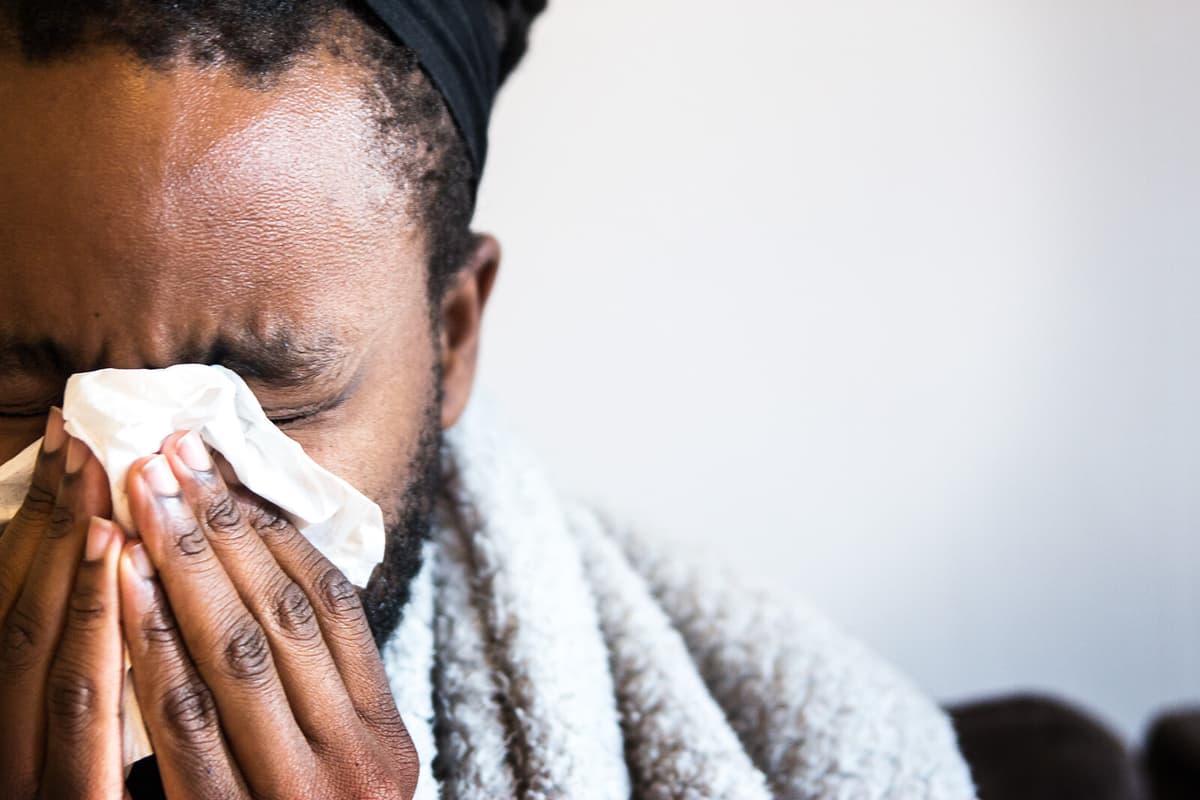Towards the end of August, most people are back at work at the same time as schools start. For many, it also means that the autumn cold makes an unwanted entrance.
It is likely not that we are more susceptible, but rather, if anything, that we meet in a different way and gather in workplaces and classrooms. The contacts between people increase and become more frequent compared to during the holiday season, says Klara Sondén, infectious disease doctor and deputy state epidemiologist at the Public Health Agency.
So far, no increase is seen in the Public Health Agency's statistics, although isolated clusters of respiratory viruses may have taken hold in some workplaces or school classes.
That you get a cold a few weeks into the term in the autumn, it's something we all recognize, but it's nothing that has started to appear in our surveillance. It's a very calm situation for both covid-19, influenza, and RS virus.
Advertisement
Rhinovirus spreads
The patterns of spread look different for different viruses and have been a bit more irregular after the pandemic, according to Klara Sondén. The season for influenza, RS virus, and covid-19 lies much later in the autumn, while the common cold viruses usually appear earlier.
It's common to see an increase in, for example, rhinovirus, which in most cases gives a slightly simpler infection, with a runny nose and that type of milder discomfort. There, it's common that it gets going a bit a few weeks after the school starts when everyone has gathered in schools and workplaces.
"Difficult to avoid"
For those who want to stay healthy, good hand hygiene is preferred, at the same time as one should keep in mind that many respiratory viruses tend to infect people without direct contact.
It's difficult to completely avoid these upper respiratory infections, it's something that belongs to life for all of us. But it applies just like before that you should stay home if you're sick with a fever and pronounced respiratory symptoms, so you don't infect others.
Advertisement
If you're on the mend or have very mild symptoms and no fever, then you can be at your workplace or in preschool.
Cold viruses spread through droplets in the air when the person who is sick sneezes or coughs, when you shake hands or have close bodily contact, or indirectly by touching, for example, a door handle where the virus has landed.
The risk of infection is greatest when the first symptoms begin to appear and during the first days of illness.
To reduce the risk of becoming infected or infecting others, sneeze into your elbow and use paper handkerchiefs. Wash your hands frequently with soap and water so that they lather, avoid touching your face and shaking hands, and keep a certain distance if you need to sneeze and cough.
The body can handle infections better with exercise, healthy eating habits, and sleep. On the other hand, alcohol, as well as long-term stress and sleep deprivation, can impair the immune system.
There is no conclusive scientific evidence that dietary supplements with vitamins and minerals help against colds, according to a report from the Swedish Agency for Support to Innovation. Vitamin C may possibly have a small preventive effect, but vitamin D and zinc can probably not prevent colds, according to the report.
Sources: 1177, SBU






